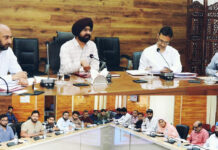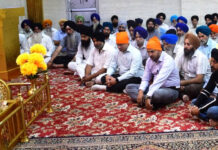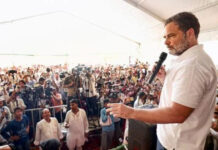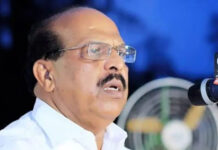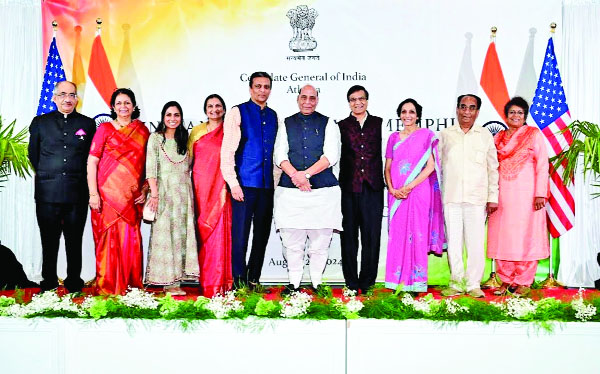DOGRA HERALD BUREAU
BISHNAH , Aug 26
On August 25, 2024, Raksha Mantri Shri Rajnath Singh visited the National Civil Rights Museum in Memphis, Tennessee, marking the final day of his official visit to the United States. The museum is a significant site, chronicling the history of the civil rights movement in the U.S. from the 17th century to the present day. Built around the Lorraine Motel, where Dr. Martin Luther King Jr. was assassinated in 1968, the museum serves as a powerful symbol of the struggle for equality and justice in America.
The museum also houses a bust of Mahatma Gandhi, highlighting his influence on the non-violent civil rights movement led by Dr. King. Shri Rajnath Singh paid tribute to both leaders during his visit, recognizing their shared philosophy of non-violence and the enduring global impact of their work.
In addition to his visit to the museum, Shri Rajnath Singh engaged with the Indian community in Memphis, which included members from nearby cities such as Atlanta, Nashville, and others. During the interaction, he praised the Indian diaspora for their significant contributions to the social, scientific, and economic fabric of the United States. Describing them as a “living bridge” between India and the U.S., he emphasized their role in fostering close relations and goodwill between the two nations.
Shri Rajnath Singh also acknowledged the efforts of the Indian community in Memphis in establishing an exhibit of Mahatma Gandhi at the museum.
Additionally, he commended their initiative in placing two honorary “Gandhi Way” street signs near the museum in 2019 to commemorate the 150th birth anniversary of Mahatma Gandhi.
These efforts, he noted, symbolize the deep-rooted connection and shared values between the two countries.
In his address, Shri Rajnath Singh highlighted India’s remarkable growth story over the last decade, underscoring the country’s potential and the promising future that lies ahead. He expressed confidence in the continued strengthening of India-U.S. relations, driven in large part by the Indian diaspora’s dedication and contributions.
The visit to the National Civil Rights Museum and the interaction with the Indian community concluded Shri Rajnath Singh’s successful and impactful tour of the United States.


